- Home
- Alexandre Dumas
The Three Musketeers - Alexandre Dumas - [Full Version] - (ANNOTATED) Page 3
The Three Musketeers - Alexandre Dumas - [Full Version] - (ANNOTATED) Read online
Page 3
“Hey! You, Monsieur!” he cried, “You, hiding behind that shutter! Yes, you! Tell me what you’re laughing at and we’ll all laugh together!”
The gentleman slowly raised his eyes from the mount to the master, as if he needed a moment to be certain that it could really be to him that these strange reproaches were addressed. Then, unable to doubt the matter any longer, he knit his brows slightly, and after a long pause, he replied to d’Artagnan, “I did not speak to you, Monsieur,” with an irony and insolence impossible to describe.
“But me, I’m speaking to you!” the young man cried, infuriated by this mix of insolence and manners, of politeness and disdain.
The stranger regarded him for a moment with a slight smile, then withdrew from the window, strolled slowly out the door of the inn, and placed himself in front of the horse, within two paces of d’Artagnan. His serene expression and insolent attitude redoubled the mirth of the pair remaining at the window. As he approached, d’Artagnan drew his sword a foot from its scabbard.
“Decidedly, this horse is quite the buttercup—or was, in its distant youth,” resumed the stranger, addressing the men at the window. He paid no attention whatsoever to d’Artagnan who, fed up, placed himself in front of him. “This color is well known in botany, but has heretofore been rare among horses.”
“There are those who would laugh at the horse who wouldn’t dare to laugh at the rider!” cried the furious young emulator of Tréville.
“I rarely laugh, Monsieur, as you can probably tell from my face,” replied the stranger, “but nevertheless I retain the privilege of laughing when I please.”
“And I,” cried d’Artagnan, “will allow no man to laugh when it displeases me!”
“Indeed, Monsieur?” continued the stranger, more serene than ever. “Well, that is perfectly correct.” And turning on his heel, he moved to enter the inn yard by the gate, within which d’Artagnan could see a saddled horse. But d’Artagnan was not the sort to allow someone to escape who’d had the insolence to mock him. He drew his sword and pursued the stranger, crying, “Turn! Turn, Monsieur Jester, or I’ll strike you from behind!”
“Strike me!” said the other, pivoting on his heel and regarding the young man with as much astonishment as contempt. “Come, come, dear fellow, you must be mad!” Then, as if to himself: “This is annoying. What a find this fellow would be for His Majesty, who’s searching everywhere for young heroes to recruit for his musketeers!”
He’d scarcely finished when d’Artagnan made such a furious lunge at him that, if he hadn’t sprung nimbly backward, he probably never would have joked again. The stranger, seeing this was no laughing matter, drew his sword, saluted his adversary, and gravely placed himself en garde. But at that moment his two cronies, accompanied by the innkeeper, attacked d’Artagnan from behind with club, shovel, and tongs. Turning to face this shower of blows diverted d’Artagnan so completely from his attack that his adversary sheathed his sword, becoming a spectator of the fight instead of a participant. Still imperturbable, he said, “A plague on these Gascons! Put him back on his orange horse and let him go!”
“Not before I’ve killed you, you coward!” cried d’Artagnan, putting the best face possible on the situation and refusing to retreat one step before his three assailants, who continued to rain blows on him.
“Yet another gasconade,” said the gentleman. “Upon my honor, these Gascons are incorrigible! Continue the dance, since he insists. He’ll let us know when he’s had enough.”
But the stranger didn’t know what manner of man he was dealing with. D’Artagnan was never one to cry for quarter. The fight continued a few moments longer and then d’Artagnan, exhausted, dropped his sword, which had been broken in two by a club. The next moment a blow fell full on his forehead and knocked him to the ground, bloody and nearly senseless.
This was when the citizens came rushing to the scene from all sides. The host, fearing more trouble, carried the wounded man with the help of his waiters into the kitchen, where he began to attend to him. As for the gentleman, he resumed his place at the window and regarded the crowd with a certain impatience, apparently annoyed by their refusal to go away.
“So, how fares the madman?” he said, turning to address his host, who’d come from within to inquire if he was hurt.
“Your Excellency is safe and sound?” asked the innkeeper.
“Yes, perfectly safe and sound, my dear host. What has become of our young man?”
“He’s better,” said the host, “but he’s fainted dead away.”
“Indeed?” said the gentleman.
“However, before he fainted, he rallied enough to defy and challenge you.”
“Why, this fellow must be the devil himself!” said the stranger.
“Oh, no, Your Excellency, he’s far from being the devil,” the host sneered. “While he was unconscious we rifled his saddlebags and found nothing but a clean shirt and eleven crowns. Nonetheless he said in his delirium that if this had happened in Paris you’d be sorry pretty quickly—but since it happened here you’ll be sorry later.”
“Is that so?” said the stranger, coolly. “He must be some Prince of the Blood in disguise.”
“I’m telling you this, Monsieur,” replied the host, “so you may be on your guard.”
“Did he name no one in his fury?”
“He did! He slapped his pocket and said, ‘We’ll see what Monsieur de Tréville thinks of this insult to his protégé.’”
“Monsieur de Tréville?” said the stranger, all attention. “He struck his pocket while naming Monsieur de Tréville . . . ? Well, my dear host, while your young man was unconscious, I’m sure you didn’t fail to take a look in that pocket. What did he have?”
“A letter addressed to Monsieur de Tréville, Captain of the Musketeers.”
“Indeed!”
“It’s just as I have the honor to tell Your Excellency.”
The host, who wasn’t very clever, missed the expression his words brought to the stranger’s face. The latter rose from the windowsill, knitting his brows with concern. “The devil!” he murmured between his teeth. “Can Tréville have set this Gascon on me? He’s very young—but a sword thrust is a sword thrust, whatever the age of the swordsman, and one is less suspicious of a youth. A small obstacle can be enough to overturn a great plan.”
The stranger fell into a brief reverie. “See here, my host,” he said at last, “isn’t there some way you can relieve me of this frantic fellow? In all conscience, I can’t kill him, and yet,” he added, with a coldly menacing expression, “he annoys me. Where is he?”
“In my wife’s chamber upstairs, where they’re dressing his wounds.” “His clothes and saddlebag are with him? He hasn’t removed his doublet?”
“On the contrary, everything is in the kitchen. But if he annoys you, this young madman . . .”
“He does. He causes the kind of commotion in your inn that decent people can’t tolerate. Go upstairs, prepare my bill, and alert my lackey.”
“What? Is Monsieur leaving so soon?”
“As you well know, since I’ve already ordered my horse saddled. Haven’t I been obeyed?”
“It’s done; as Your Excellency can see, your horse is at the front gate, all ready for your departure.”
“Good. Do as I’ve told you, then.”
“Huh!” said the host to himself. “Can he be afraid of this boy?” But at a glare from the stranger he cut his musing short, bowed deferentially, and left.
“It wouldn’t do for Milady9 to encounter this clown,” murmured the stranger. “She should be here any moment—she’s late already. My best course would be to ride out to meet her . . . If only I could find out what’s in this letter addressed to Tréville!” And the stranger, muttering to himself, headed for the kitchen.
Meanwhile the host, who had no doubt but that the presence of the young man was driving the stranger from his inn, went back up to his wife’s chamber, where he found that d’Artagnan h
ad regained his wits. Telling him the police would go pretty hard on him for picking a fight with one of the Grands—for, in the host’s opinion, the stranger was nothing less—the innkeeper insisted d’Artagnan should get up and be on his way, despite his weakness. D’Artagnan rose, half stunned, without his doublet, and with his head wrapped in linen. Impelled by the host, he headed downstairs. When he arrived in the kitchen, through the window he saw his antagonist calmly conversing at the door of a heavy carriage drawn by two large Norman horses. The person he spoke with, whose face was framed by the carriage window, was a woman of twenty to twenty-two years of age. As already noted, d’Artagnan could assess a face very quickly. He saw at first glance that this woman was young and beautiful, but he was struck by how very different her beauty was from that of the southern climes where d’Artagnan had lived till then. She was pale and fair, with long blond hair falling in curls to her shoulders, large, blue, languishing eyes, rosy lips, and hands of alabaster.
Her voice was quite lively as she spoke with the stranger. “Then, His Eminence orders me . . .”
“. . . To return instantly to England, and inform him if the duke leaves London.”
“And my other instructions?” asked the fair traveler.
“They’re contained in this box, which you will open when you’re on the other side of the Channel.”
“Very well. And you? What will you do?”
“Me, Milady? I return to Paris.”
“Without punishing this insolent boy?” asked the lady.
Just as the stranger opened his mouth to reply, d’Artagnan, who’d heard everything, rushed out the door. “This insolent boy does the punishing,” he cried, “and this time I trust my quarry won’t escape like before.”
“Escape?” replied the stranger, knitting his brow.
“That’s right! I presume you won’t dare to run in front of a woman!”
“Think,” said Milady, seeing the gentleman put his hand to his sword. “The least delay and all may be lost.”
“You’re right,” said the gentleman. “Be on your way and I’ll be on mine.” And, saluting the lady with a bow, he sprang onto his horse, while her coachman plied his whip. The two left at a gallop, departing in opposite directions.
“Hey! Your bill!” shouted the host, whose respect for the stranger was changed to profound disdain when he saw him depart without paying his tab.
“Pay him, rascal,” cried the stranger to his lackey as he galloped away. The lackey threw two or three silver coins at the host’s feet and galloped off after his master.
“Coward! Wretch! False gentleman!” cried d’Artagnan, dashing after the lackey. But the wounded youth was still too weak for such an effort. He’d scarcely gone ten paces before his ears began to ring, a red cloud fogged his vision, and he was overcome by dizziness. He fell in the middle of the street, still shouting, “Coward! Coward! Coward!”
“He is indeed a coward,” echoed the innkeeper as he approached d’Artagnan, trying by this little flattery to ingratiate himself with the poor boy, as the heron of the fable did with the snail he’d snubbed the night before.
“Yes, a coward indeed,” murmured d’Artagnan, “but she—how beautiful!”
“She? Who?” asked the host.
“Milady,” d’Artagnan gasped, then passed out for a second time.
“Ah, well,” said the host, “I’ve lost two customers, but this one remains, and it looks to me as if it’ll be for several days. I’m eleven crowns to the good.”
Eleven crowns was the exact sum remaining in d’Artagnan’s purse. The host reckoned on eleven days of recovery at a crown a day, but he underestimated his guest. At five o’clock the next morning d’Artagnan arose, descended by himself to the kitchen, and asked for (among other ingredients the names of which have been lost) some wine, some oil, and some rosemary. Then, with his mother’s recipe in his hand, he prepared a balm that he applied to his numerous wounds, replacing his bandages himself and refusing the aid of a doctor. Thanks, no doubt, to the effectiveness of this Bohemian balm—and perhaps also thanks to the absence of a doctor—d’Artagnan was back on his feet by that evening. By the next day he was nearly cured.
However, when it came time to pay for the rosemary, the oil, and the wine, which were his only purchases, as d’Artagnan had eaten nothing at all (in contrast with the yellow horse that, at least according to the hostler, had eaten three times the usual amount), d’Artagnan found nothing in his pockets but his old velvet purse with its eleven crowns. The letter addressed to Monsieur de Tréville had disappeared.
The young man began to search for the letter with great diligence, turning all his pockets out twenty times, rummaging through his saddle bags, and examining every fold of his belt pouch. Finally he concluded that the letter was really gone, and flew into such a rage that the outcome would probably require another purchase of wine, oil, and rosemary. When the host saw this young hothead threatening to destroy his establishment unless his letter was found, he seized an iron spit, his wife grabbed a broom handle, and the servants picked up the same clubs they’d used before.
“My letter of recommendation!” cried d’Artagnan. “My letter of recommendation! Or, by God’s blood, I’ll spit you all like fowls!”
Unfortunately, circumstances were against the young man fulfilling his threat, as he’d entirely forgotten that his sword had been broken in two in his first brawl. When d’Artagnan drew his rapier he found himself armed with the stump of a sword six or eight inches in length, which the host had carefully replaced in the scabbard. As to the rest of the blade, the innkeeper had slyly put it aside for use as a larding-pin.
However, this trick probably wouldn’t have stopped the fiery young man if it hadn’t occurred to the host that his guest had a legitimate complaint. “Wait a minute,” he said, lowering the spit, “where is this letter?”
“Exactly! Where is this letter?” cried d’Artagnan. “In the first place, let me warn you, this letter is for Monsieur de Tréville, and it must be found. If it isn’t found, he’ll know how to see that it is found!”
This threat completely intimidated the host. After the king and the cardinal, Monsieur de Tréville was probably the name most frequently on the lips of both the military and the middle class. (True, there was also Father Joseph, but his name was never spoken aloud, such was the terror inspired by His Gray Eminence, as the cardinal’s familiar was called.)
So the host dropped his spit, ordered his wife and servants to do the same with their weapons, and set the example by beginning to search for the lost letter himself. “Is this letter of great value?” he asked, after some minutes of futile search.
“Sandis! I should think so!” cried the Gascon, who counted on this letter to help him make his way at Court. “It contained my fortune!”
“Letters of credit drawn on the public funds?” asked the host, anxiously.
“Letters of credit drawn on the private treasury of His Majesty!” responded d’Artagnan, who counted on entering the service of the king by virtue of the letter’s recommendation, and therefore thought such a response wasn’t stretching the truth too far.
“The devil!” said the host, now truly worried.
“But that’s of no importance,” said d’Artagnan with aplomb, “no importance, the money is nothing—the letter is everything! I’d rather have lost a thousand pistoles10 than that letter.” He might as easily have said twenty thousand but he was restrained by a certain youthful modesty.
As the host was consigning himself to the devil for his failure to find anything, a sudden light burst upon his mind. “That letter isn’t lost!” he cried.
“What!” said d’Artagnan.
“No—it was stolen from you.”
“Stolen! By whom?”
“By the gentleman who was here the other day. He came down into the kitchen where your doublet was, and stayed there alone for a while. I’d wager he’s the one who stole it.”
“You think so?” repli
ed d’Artagnan, unconvinced. He knew better than anyone that the value of the letter was purely personal and saw nothing in it to tempt anyone’s greed. He knew that neither servants nor guests of the inn had anything to gain by its possession. “Do you say,” resumed d’Artagnan, “that you suspect that impertinent gentleman?”
“I say that I’m sure of it,” said the host. “When I announced that Your Lordship was the protégé of Monsieur de Tréville, and that you even had a letter for that illustrious gentleman, he looked very uneasy. He asked me where the letter was and immediately went down into the kitchen, where he knew your doublet to be.”
“Then that’s my thief,” replied d’Artagnan. “I’ll complain to Monsieur de Tréville and Monsieur de Tréville will complain to the king.” He then majestically drew two crowns from his purse and presented them to the host, who accompanied him, hat in hand, to the gate. D’Artagnan remounted his yellow horse and rode off.
The horse carried him without further incident to the Porte Saint-Antoine at Paris, where his owner sold him for three crowns—a good price, considering d’Artagnan had ridden him hard on the final stage. The dealer to whom d’Artagnan sold the nag made it clear that he gave the young man such an exorbitant sum solely due to the uniqueness of the horse’s color.
Thus d’Artagnan entered Paris on foot, carrying his saddlebags under his arm, and marched along until he found a chamber to rent that matched his limited resources. This chamber was a sort of attic situated in a house in the Rue des Fossoyeurs,11 near the Luxembourg Palace. As soon as he made his down payment d’Artagnan took possession of his room, passing the rest of the day in sewing some ornamental lace onto his doublet and breeches. His mother had secretly removed this lace from a nearly new doublet belonging to d’Artagnan the elder and given it to her son.
Next he went to the Quai de la Ferraille to have a new blade put on his sword, then went over to the Louvre to ask the first King’s Musketeer he should meet how to find the hôtel, or mansion, of Monsieur de Tréville. This turned out to be in the Rue du Vieux-Colombier,12 in the same neighborhood as the room rented by d’Artagnan, a circumstance he took as a good omen for the success of his journey.

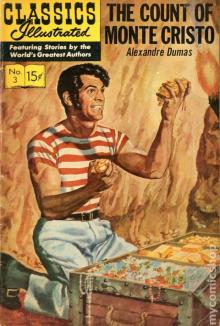 The Count of Monte Cristo, Illustrated
The Count of Monte Cristo, Illustrated Knight of Maison-Rouge
Knight of Maison-Rouge![The Three Musketeers - Alexandre Dumas - [Full Version] - (ANNOTATED) Read online](http://i1.bookreadfree.com/14/the_three_musketeers_-_alexandre_dumas_-_[full_version]_-_annotated_preview.jpg) The Three Musketeers - Alexandre Dumas - [Full Version] - (ANNOTATED)
The Three Musketeers - Alexandre Dumas - [Full Version] - (ANNOTATED)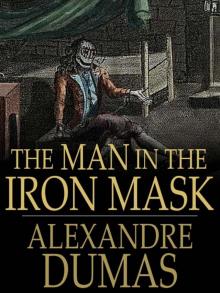 The Man in the Iron Mask
The Man in the Iron Mask The Count of Monte Cristo (Penguin Classics eBook)
The Count of Monte Cristo (Penguin Classics eBook) Count of Monte Cristo (abridged) (Barnes & Noble Classics Series)
Count of Monte Cristo (abridged) (Barnes & Noble Classics Series) The Women's War
The Women's War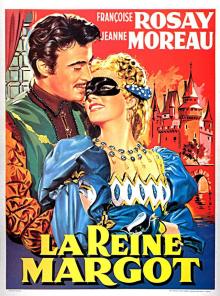 La reine Margot. English
La reine Margot. English The Vicomte de Bragelonne
The Vicomte de Bragelonne__english_preview.jpg) La dame aux camélias (Novel). English
La dame aux camélias (Novel). English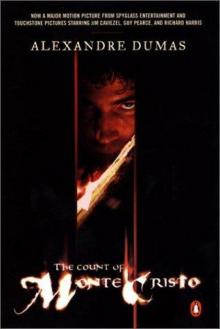 The Count of Monte Cristo
The Count of Monte Cristo Balsamo, the Magician; or, The Memoirs of a Physician
Balsamo, the Magician; or, The Memoirs of a Physician Ten Years Later
Ten Years Later The Romance of Violette
The Romance of Violette The Mesmerist's Victim
The Mesmerist's Victim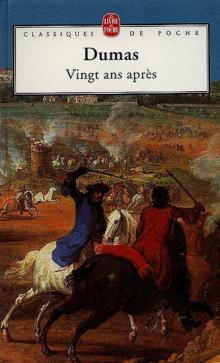 Vingt ans après. English
Vingt ans après. English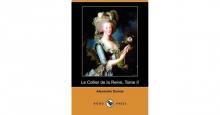 Le collier de la reine. English
Le collier de la reine. English Taking the Bastile; Or, Pitou the Peasant
Taking the Bastile; Or, Pitou the Peasant The Hero of the People: A Historical Romance of Love, Liberty and Loyalty
The Hero of the People: A Historical Romance of Love, Liberty and Loyalty Louise de la Valliere
Louise de la Valliere Les Quarante-cinq. English
Les Quarante-cinq. English Ange Pitou (Volume 1)
Ange Pitou (Volume 1) The Royal Life Guard; or, the flight of the royal family.
The Royal Life Guard; or, the flight of the royal family. Les trois mousquetaires. English
Les trois mousquetaires. English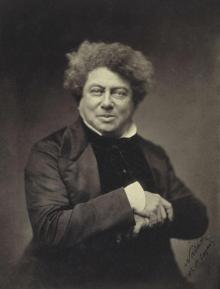 Une fille du régent. English
Une fille du régent. English The Knight of Maison-Rouge
The Knight of Maison-Rouge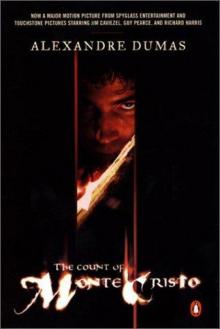 The Count of Monte Cristo (Unabridged Penguin)
The Count of Monte Cristo (Unabridged Penguin) Ange Pitou
Ange Pitou The Romance of Violette (vintage erotica)
The Romance of Violette (vintage erotica) The Three Musketeers
The Three Musketeers Three Musketeers (Barnes & Noble Classics Series)
Three Musketeers (Barnes & Noble Classics Series) Georges
Georges Man in the Iron Mask (Barnes & Noble Classics Series)
Man in the Iron Mask (Barnes & Noble Classics Series) The Red Sphinx
The Red Sphinx